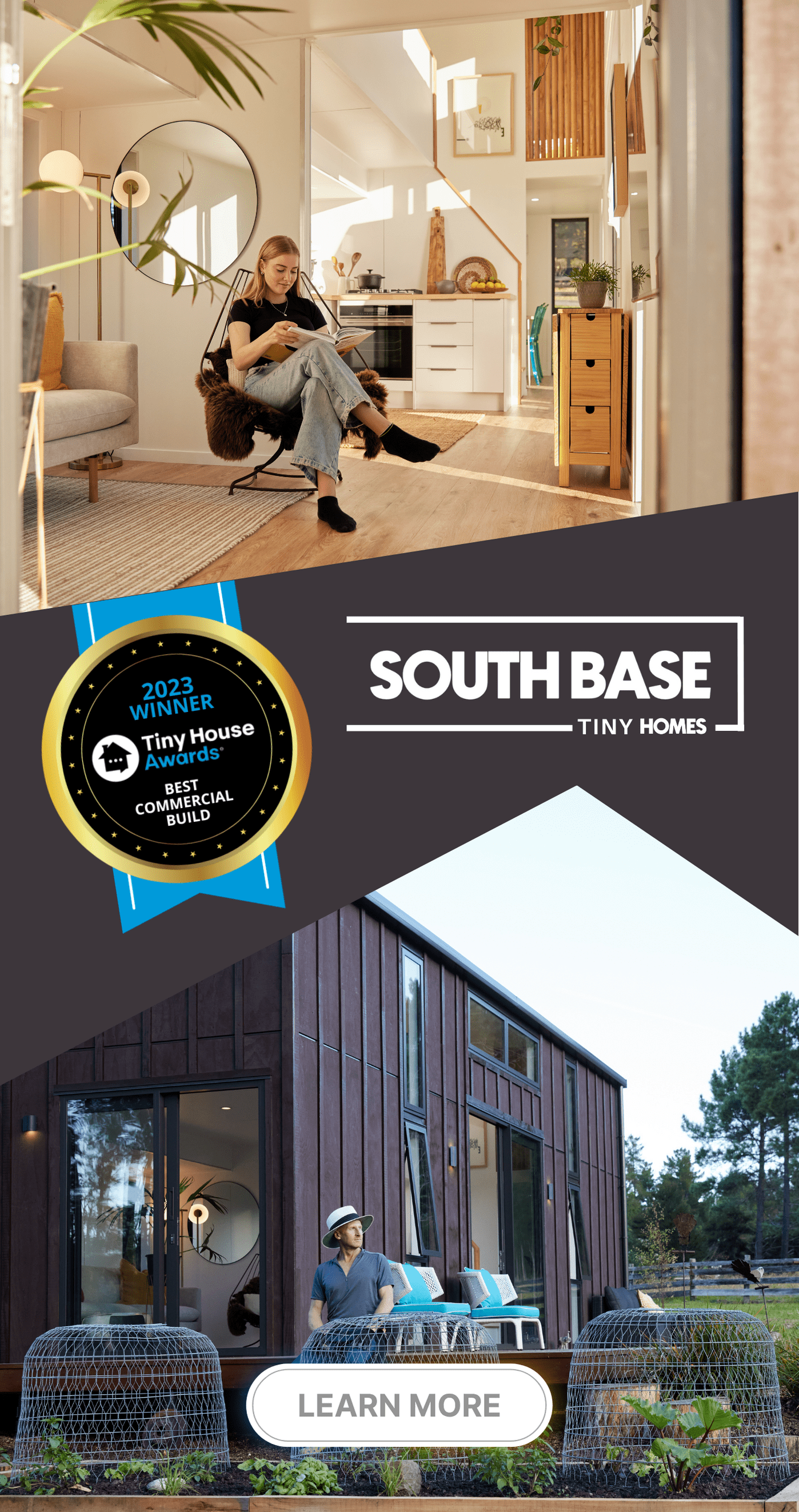In an era marked by soaring living costs, an unexpected solution is emerging from the heart of New Zealand, the Tiny House Movement.
Amidst the backdrop of skyrocketing mortgage rates and rent prices, an increasing number of New Zealanders are embracing tiny houses, not only as a lifestyle choice but as a financially prudent path to a more contented life. The tiny house community has seen a significant demographic transformation too, with a remarkable 58% of people living in tiny houses aged 45 and above, reflecting a broader societal shift towards downsizing into more affordable housing.
Breaking Stereotypes: A Diverse Community Embraces Tiny Living
The Tiny House Movement is defying stereotypes, proving that it's not solely the domain of the young and unconventional. This burgeoning community spans a wide demographic spectrum, from young professionals to retirees, single parents to contemporary families, each discovering unique advantages in the world of tiny living.
Single Parents Embracing Simplicity:
For single parents, tiny living offers a financial lifeline with reduced utility costs and minimal maintenance. The intimate setting of a tiny home nurtures stronger bonds with their children, creating a supportive and adaptable environment.
Active Retirees Reinventing Their Golden Years:
Active retirees are increasingly drawn to tiny houses, seeking a lifestyle that aligns with their pursuit of adventure and freedom. Downsizing liberates their time and finances, allowing them to savor retirement without the burdens of a traditional home. We have seen a huge change in demand for more single-level tiny homes for this demographic.
Solo Retirees Finding New Beginnings:
For solo retirees, often facing their retirement years without a nest egg due to relationship separation or bereavement, tiny homes provide an affordable option to keep their independence and to live in a home that is low maintenance and affordable, alleviating financial burdens and fostering a sense of community.
Modern Families Prioritizing Connection Over Size:
In contrast to the fast-paced consumerist lifestyle, many families are opting for tiny houses. This choice allows them to focus on quality time and environmental responsibility while alleviating financial pressures. And as the family grows over time, we have seen families adapt their living space by adding on additional cabins next to the tiny house.
Young Professionals Making Strategic Choices:
Young professionals view tiny living as an affordable stepping stone towards homeownership, offering financial flexibility and an efficient lifestyle that resonates with their ecological values.
Whānau on Iwi Land Honouring Heritage:
For those residing on Iwi land, tiny houses embody values of sustainability and cultural connectedness, providing an affordable housing solution while preserving ties to their ancestral land.
Travellers Seeking a Steady Base:
For frequent travelers, a tiny home on wheels offers an ideal blend of stability and adaptability, enabling exploration without the constraints and lots of maintenance of a larger traditional home.
Environmentalists Practicing Their Principles:
Environmentalists are drawn to tiny living for its minimal environmental footprint, aligning with their commitment to resource conservation and sustainable living.
Astute Investors Recognizing Potential:
Recognizing the growing demand for unique travel experiences, investors see tiny houses as a lucrative opportunity in eco-tourism and sustainable accommodation.
The Tiny Solution to Enormous Challenges
In the midst of the financial challenges faced by Kiwis, tiny houses stand out as a ray of hope. They encompass not just places to live but rather represent a lifestyle that offers financial freedom, fosters stronger community bonds, and embodies sustainable living. This movement underscores the idea that embracing a smaller ecological footprint can lead to a more enriching and fulfilling life, marking a remarkable transformation within the housing sector. It provides a tangible and pragmatic response to the pressing issues of affordability and sustainability.
As New Zealand grapples with its housing crisis, the Tiny House Movement emerges as a symbol of innovation and adaptability. It transcends fleeting trends, offering a practical and impactful solution to the economic challenges of contemporary living. Tiny houses are reshaping our understanding of what constitutes a home, highlighting that life's most precious treasures often come in compact packages.


